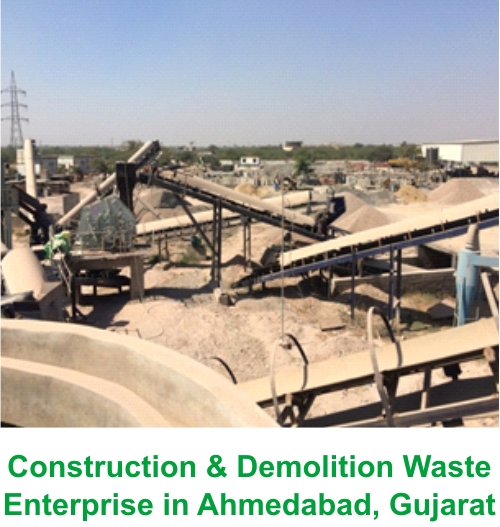|
Clean Technology for Micro,
MSMEs in India Micro, Small and Medium Scale Enterprises (MSMEs) are governed by a single law in India – MSME Act, 2006. Any manufacturing and service industry with an investment upto 10 crore is under the ambit of MSME Act, 2006. Environmental Performance of MSMEs in India
Manufacturing is one of the most resource
intensive activities and hence more polluting as compared to the service
sector. Cost of environmental damage by the manufacturing sector in
India is estimated to be $32 billion. 70% of the total industrial
pollution load is attributed to MSMEs. A recent Comprehensive
Environmental Pollution Index (CEPI) of the Central Pollution Control
Board shows that 35 out of 43 industrial clusters fall in 'Red' Category
i.e. highly polluting industries. The reason is that MSMEs are moderate
revenue generating industries which are thriving to grow. Thus, legal
environmental compliance is more sought after than concerned pollution
control efforts. National and international studies on MSMEs'
environmental issues points at lack of
The Ministry of MSME has adopted a MSME-Cluster Development Programme to enhance the productivity of MSMEs in India. The objectives of the programme are to address technological, financing, skilling, sustainability challenges faced by identified MSME clusters spread over various geographies in the country. However the interventions made by these programmes have still not reached highly polluting industries as indicated in CEPI index of CPCB. Clean Technologies in MSMEs Clean technologies for MSMEs can be classified broadly in four categories:
Technology upgradation programmes and schemes of the Ministry have been inclined towards supporting energy efficient technologies and packaging technologies. However, these are only part of a larger clean technology portfolio that can be adopted by MSMEs. In the past two decades, small to medium scale enterprises have come up in India which have taken up waste processing as a business. These enterprises have demonstrated a business case for clean technologies in MSMEs. However, most of these enterprises suffer from low sales of products due to lack of preferential procurement policies from the government. In 2015, the Ministry of Commerce and Industry launched the 'Technology Acquisition Development Fund' to facilitate acquisition of clean, green and energy efficient technologies, in the form of Technology / Customised Products / Specialised Services / Patents / Industrial Design available in the market in India or globally, by Micro, Small and Medium Enterprises (MSMEs). Based on applications received from MSMEs, the fund will provide support of INR 50 lakhs for green technology acquisition, technology/equipment manufacturing subsidies and green manufacturing. The quantum of financial support provided by the fund is advantageous to micro and small scale enterprises where capital investments are in the range of 10 lakh to 5 crore. However, it's benefit to medium sale enterprises where capital investments on plant, equipment and machinery are in the range of 2 to 10 crore is still unclear. ■ References: CPCB Industrial Pollution [Online] // ENVIS Centre on Control of Pollution Water, Air and Noise. - July 20, 2017. - http://cpcbenvis.nic.in/industrial_pollution.html#. Ministry of MSME Annual Report (2015-16) [Report]. - New Delhi : Ministry of Micro, Small and Medium Enterprises, 2016. - p. 169. MSME at a Glance [Report]. - New Delhi : Ministry of Micro, Small and Medium Enterprises, 2016. - p. 69. Press Information Bureau Launch of Technology Acquisition and Development Fund under National Manufacturing Policy [Online] // Press Information Bureau. - November 19, 2015. - http://pib.nic.in/newsite/printrelease.aspx?relid=131673. World Bank Strengthening Institutions for Sustainable Growth Country Environmental Analysis [Report]. - Washington D.C : World Bank, 2006. - p. 5. - 38292-IN.
Vaibhav Rathi
|
 technology
upgradation, financing and awareness in manufacturing MSMEs.
technology
upgradation, financing and awareness in manufacturing MSMEs.